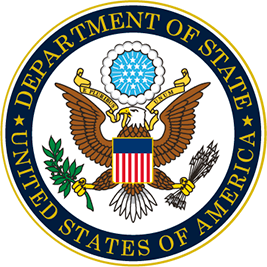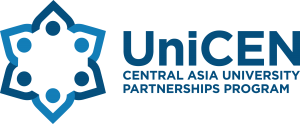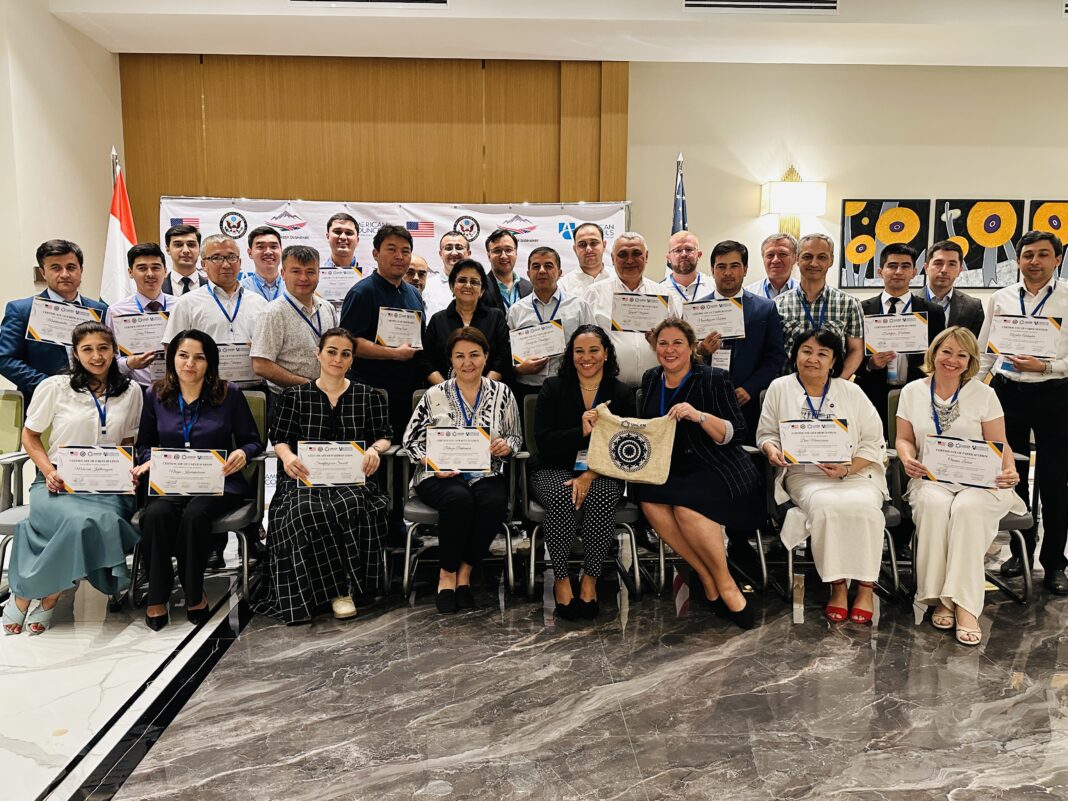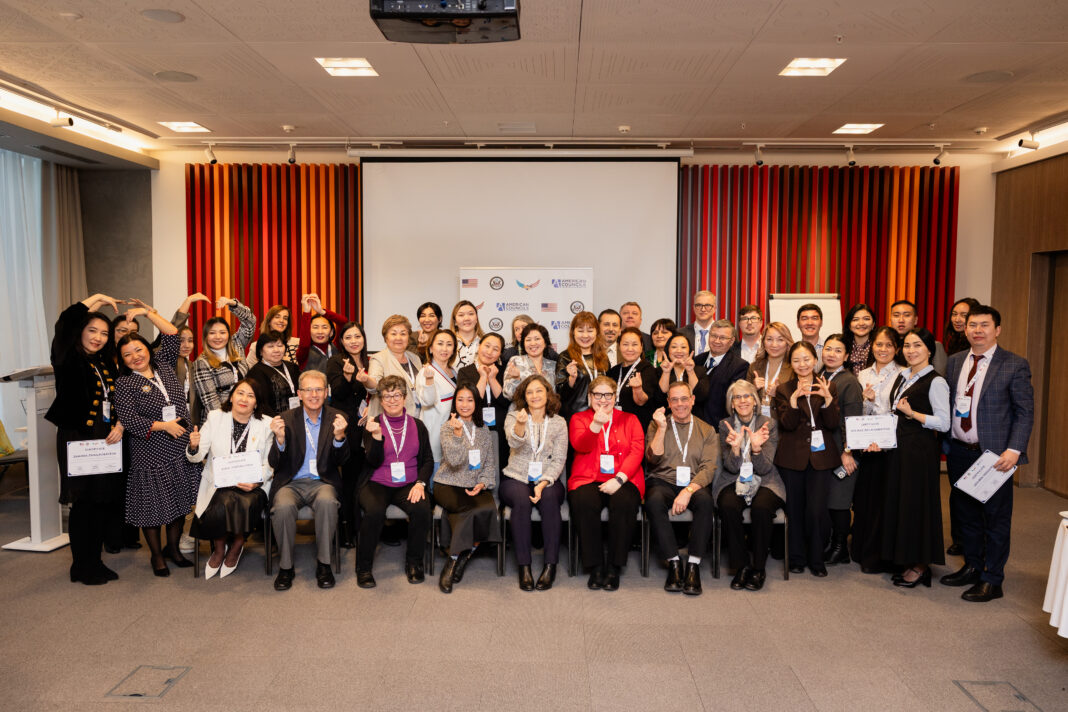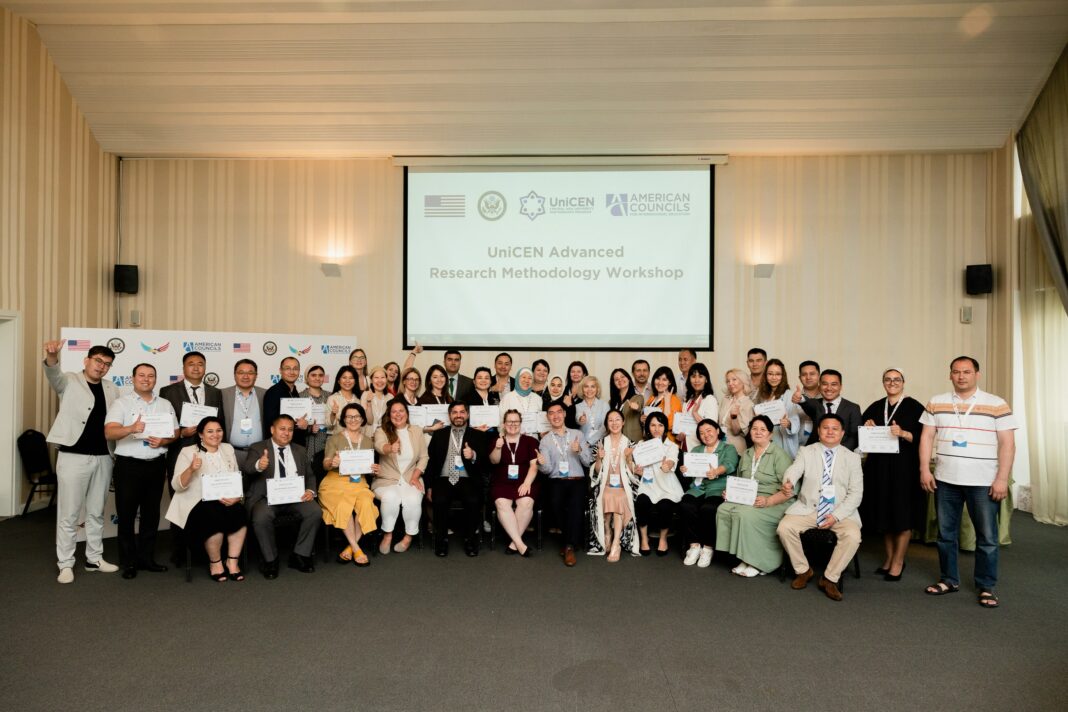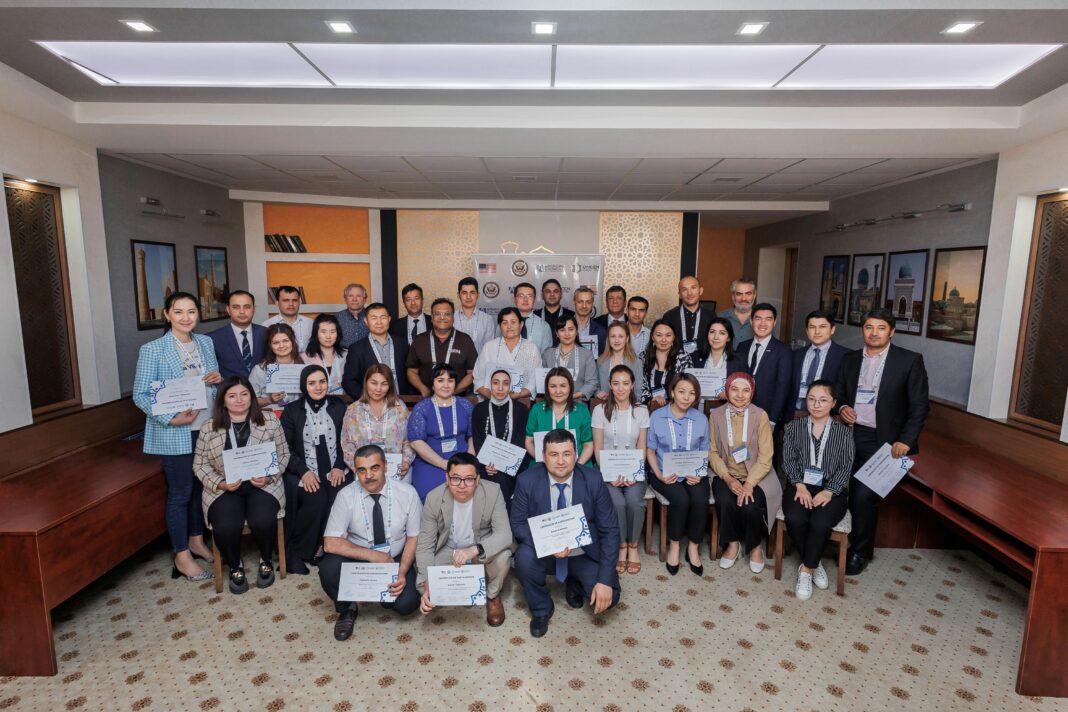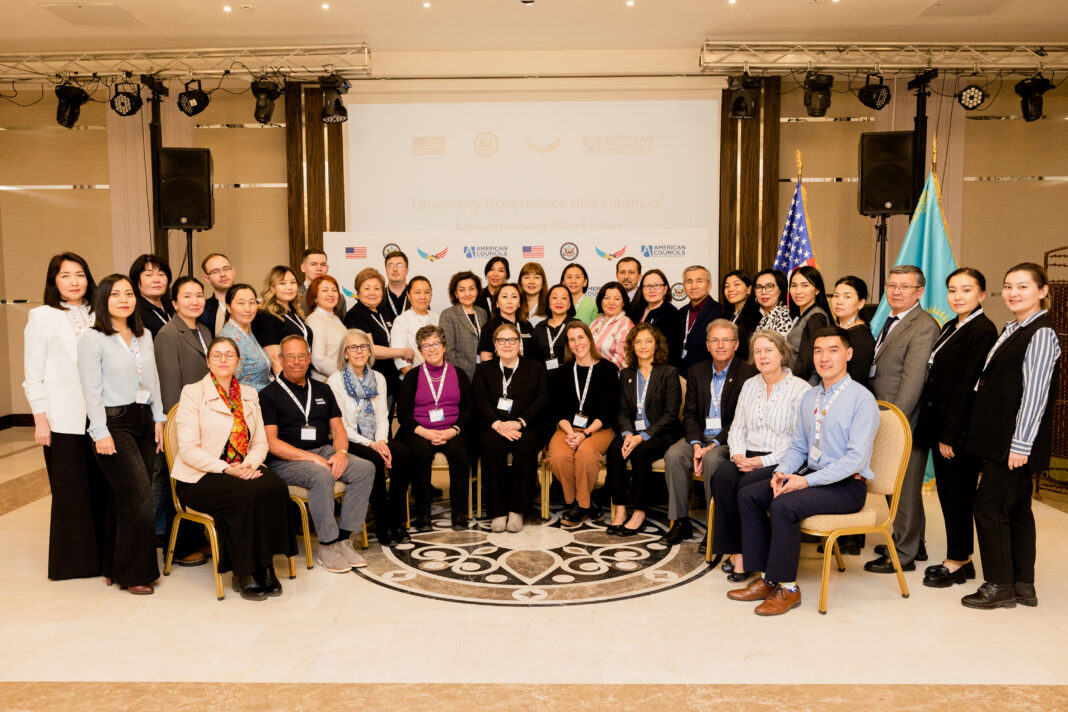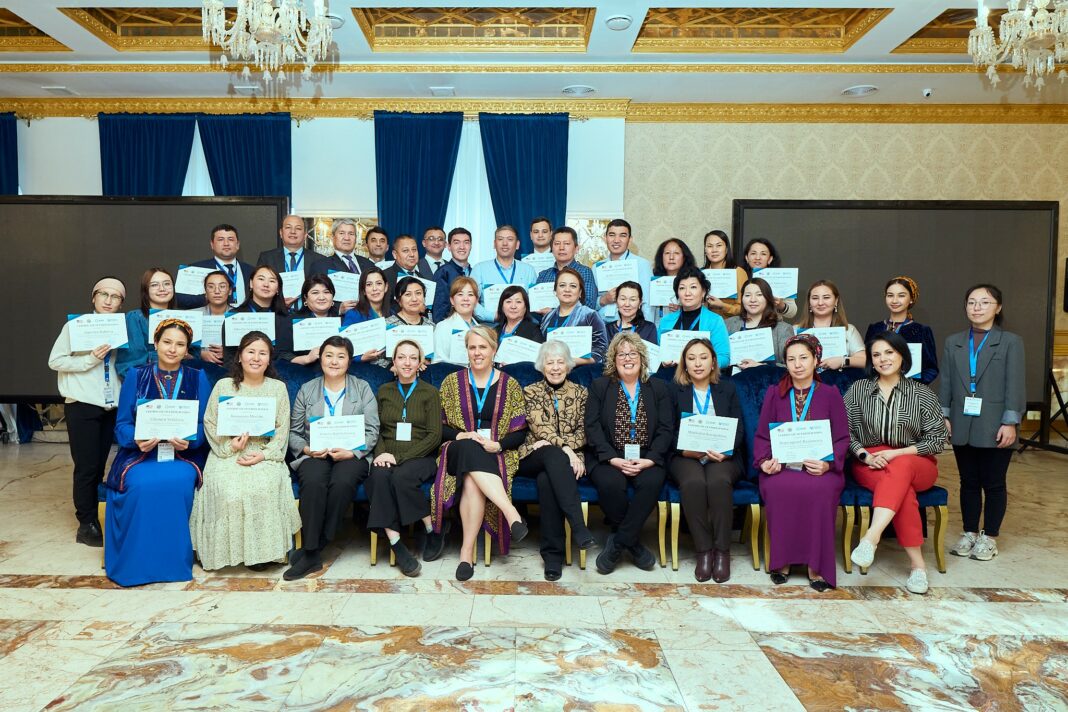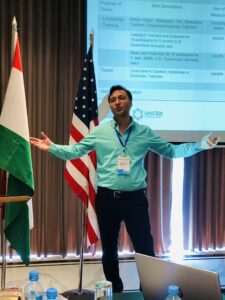 On June 15 and 16, 2023 U.S.-Central Asia University Partnerships Program (UniCEN) offered its first capacity-building workshop in Tajikistan. The training program was intended to support Tajik universities’ internationalization efforts and improve the capacity of Tajik educators to initiate, develop, and implement international collaborative projects while fostering institutional ties and cooperation between higher education institutions (HEIs) in Tajikistan and Uzbekistan.
On June 15 and 16, 2023 U.S.-Central Asia University Partnerships Program (UniCEN) offered its first capacity-building workshop in Tajikistan. The training program was intended to support Tajik universities’ internationalization efforts and improve the capacity of Tajik educators to initiate, develop, and implement international collaborative projects while fostering institutional ties and cooperation between higher education institutions (HEIs) in Tajikistan and Uzbekistan.
A total of 26 Central Asian administrators, faculty members, and researchers attended the event. Tajik participants included representatives from 9 HEIs, including Tajik State University of Commerce (TSUC); Tajik National University; Tajik State University of Law, Business and Politics; Academy of Public Administration under the President of the Republic of Tajikistan; University of Central Asia, Tajik Technical University; Dangara State University, National Academy of Sciences of Tajikistan, Technological University of Tajikistan. They were joined by colleagues from 8 Uzbekistani universities, who travelled to Dushanbe to showcase their collaborative projects implemented as part of UniCEN, as well as to explore ideas for cooperation with their colleagues from Tajikistan.
American Councils provided first-hand knowledge about U.S. universities’ internationalization approaches and strategies and was able to provide the participants with valuable practical guidance on partnering with U.S. institutions. Saidqosim Mukhtorov, Head of the International Center & Global Engagement at the Institute of Economics and Trade of the Tajik State University of Commerce equipped with personal experience working with U.S. universities (including a successful UniCEN project implemented jointly with Old Dominion University), was well-positioned to advise the workshop attendees based on his knowledge of local context and culturally specific challenges and opportunities. To help the participants prepare for the workshop, American Councils staff distributed several practical guides, including Introduction to US Higher Education, Internationalization Planning Guide, and a manual on creating and implementing international virtual exchange projects (Collaborative Online International Learning (COIL)) in advance of the event.
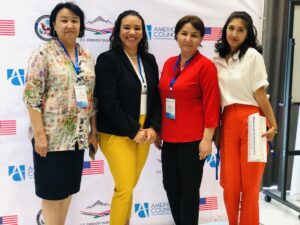 In addition to thematic sessions, presentations, and networking activities, the UniCEN team included an interactive activity to allow the participants to practice and improve their cross-cultural collaborative skills. The exercise was to be performed in small groups mixing Tajik and Uzbeki peers. Each small group had to come up with an international partnership proposal and to pitch it to the rest of the group using the Shark Tank format. The proposals had to include a problem statement, brief description of planned activities, basic budget and M&E plan; the criteria for choosing the winner (determined by secret ballot) were those which would typically be used in real-life situations (relevance, clarity of implementation strategy, feasibility, and budget justification). The exercise proved to be successful, was well received by the audience, and helped remove communication barriers between counterparts from the two countries.
In addition to thematic sessions, presentations, and networking activities, the UniCEN team included an interactive activity to allow the participants to practice and improve their cross-cultural collaborative skills. The exercise was to be performed in small groups mixing Tajik and Uzbeki peers. Each small group had to come up with an international partnership proposal and to pitch it to the rest of the group using the Shark Tank format. The proposals had to include a problem statement, brief description of planned activities, basic budget and M&E plan; the criteria for choosing the winner (determined by secret ballot) were those which would typically be used in real-life situations (relevance, clarity of implementation strategy, feasibility, and budget justification). The exercise proved to be successful, was well received by the audience, and helped remove communication barriers between counterparts from the two countries.
The program in Dushanbe concluded the series of capacity-building workshops UniCEN had slated for spring – summer 2023. The preceding workshops included Sustainability and Grant Writing Workshop in Tashkent on November 4-5, Internationalization Workshop in Bishkek on March 25-26, Research Methodology Workshops in Tashkent (April 27-28) and Samarkand (May 1-2), and Advanced Research Methodology Workshop in Almaty on June 9-10.
The Central Asia University Partnership Program (UniCEN), funded by the U.S. Embassy in Tashkent and administered by American Councils for International Education, strengthens capacities of U.S. and Central Asian university administrators and faculty to jointly address global challenges. Through over 75 partnership grants, UniCEN partners at U.S. and Central Asian universities have collaborated since 2018 to modernize curricula, co-develop jointly taught courses, and conduct research with economic impact.

